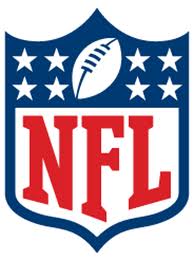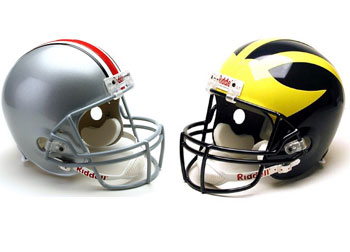 There's a cloud hanging over the NFL at the moment and it probably isn't going away any time soon.
There's a cloud hanging over the NFL at the moment and it probably isn't going away any time soon.
Commissioner Roger Goodell, after first making his rounds of various training camps, unveiled this week what he had been hinting at all along, that the league and its union are heading toward a labor showdown and aan 18-game regular season will be one of the key issues.
Goodell has made the 18-game regular season, as early as 2012, a key priority. In making his pitch, Goodell painted it as good for the fans because it will lessen an already meaningless preseason.
Whether it's really a good thing is all a matter a perspective.
For the owners, it's a potential cash bonanza. The networks broadcast preseason games out of obligation knowing that the ratings are similar to a rerun of "Sisters" on the Lifetime Network. Turn those preseason games into something far more meaningful and suddenly the networks will take notice, in the form of higher rights fees. In a struggling economy it's never a bad thing to find new revenue streams, even for a cash cow like the NFL.
For the fans, the preseason is as meaningless as an Indians game in September. They get charged full price only to witness glorified scrimmages in which starters make token appearances and a slew of undrafted free agents vie for the last 10 or so remaining spots on the roster. All these games do is whet the appetite for the real season but otherwise they're mostly ignored.
From a head coach's perspective, the preseason isn't nearly long enough. If a lot of good evaluation can be made in 4 games, just think how much better 6 or 8 games would be!
For the players, it's a potential nightmare. The one constant in the NFL is that players get injured, far more frequently and far more severely than in any other sport. All an 18 game schedule does is increase the risk even further. Players may be just commodities but they are the most important commodity. With injuries as a given, championships are won or lost on depth at all the key positions and that is simply something most teams don't have.
But don't expect the NFL to balance these perspectives because the only thing that matters are the owners. To them it's a priority and in the NFL's game of cards, that is like holding the ace of trump. It's just a matter of what they'll give up to get it in the upcoming negotiations.
The NFL will sell it to the union as a way of dividing up an even bigger pie. That will certainly get the union's interest. But I suspect that won't be enough. If they hold out for an expanded for a slightly expanded roster, that may work.. More jobs means more union dues.
Both the NFL and the union are spoiling for a fight. It's been too calm for too long. But I doubt that the 18 game season will be enough to completely solve what ails them. All it will do in the end is make an already season too long while simultaneously making an already too short career for most players shorter.
**
 Scheduling has also been on the mind of the good folks running the Big Ten and the millions of people that support and follow that conference. The addition of Nebraska to the mix will force the conference into a divisional format and a conference championship game. But it's this consequence that threatens the very traditions that make college football so great in the first place.
Scheduling has also been on the mind of the good folks running the Big Ten and the millions of people that support and follow that conference. The addition of Nebraska to the mix will force the conference into a divisional format and a conference championship game. But it's this consequence that threatens the very traditions that make college football so great in the first place.
The Big Ten has a whole slew of tradition-laden rivalries that must be preserved, not the least of which is Ohio State/Michigan. While the game itself doesn't appear to be in any sort of near-term jeopardy, some of the traditions surrounding it might.
The series began in 1897 and since 1935 Ohio State has played Michigan on the last game of the season. For all the reasons that fans of both teams know better than their kids' birthdays, it is essentially "The Game." It matters little if anything more than pride is at stake. Beat the other team and your season's been a success.
It cannot possibly be overemphasized how intimately the tradition of this game being played at season's end is intertwined with the rivalry. Irrespective of the bowl game that follows weeks later, The Game is the pinnacle of each team's season. Fans, players and coaches alike (with the exception of John Cooper then and Rich Rodriguez now) see every game preceding it as a mere distraction. All roads lead to that last game in November.
But those same people who pushed for expanding the Big Ten's reach are now trying to minimize the importance of when the Ohio State/Michigan game is played as part of the overall selling point for why the expanded conference isn't about money it's about the fans. Remember, when they say it's not about the money, it's about the money.
The reason this is an issue at all stems from a desire to not have Michigan and Ohio State play in the same division of the Big Ten. In that circumstance, the deep thinkers would want to preserve an intra-division game as the last game of the season because of its importance on who ends up playing in the conference championship. Additionally, by not having any inter-division games on the last week of the regular season you avoid the chance that those same two teams could meet the following week in the conference championship game.
Fair enough, but it begs the question as to why Michigan and Ohio State have to be in separate divisions in the first place.
Ultimately, those making these decisions, which, technically are the various colleges' athletic directors as guided by the various colleges' presidents, have to lay out their priorities. Is the tradition of The Game more or less important than the potential of having those two teams play each other in consecutive weeks?
Framed that way, the answer seems so obvious that I'm afraid it will be missed. Preserving all of the traditions of the Ohio State/Michigan game should be paramount. The Game isn't just of interest to Big Ten fans. It's one of the most anticipated/most watched games of any season in all of college football. It's traditions put the Big Ten in the best possible light at the best possible time.
If Big Ten officials want Ohio State and Michigan in separate divisions, though I'm not sure why, then an exception needs to be made for those two teams in terms of preserving that last week of the regular season for intra-divisional games. Sure, that opens up the possibility that Ohio State and Michigan will meet the next week in a conference championship, but why is it assumed that would be a bad thing? If anything, that game just becomes bigger and, again, it's the Big Ten that's ultimately the winner.
**
 Traditions have certainly been on the mind of Cleveland Browns president Mike Holmgren with his announcement on Thursday of the creation of a Browns' Ring of Honor and the first 16 inductees.
Traditions have certainly been on the mind of Cleveland Browns president Mike Holmgren with his announcement on Thursday of the creation of a Browns' Ring of Honor and the first 16 inductees.
It's certainly about time that the rich traditions of this franchise have been celebrated in such a meaningful way. But of course no good deed goes unpunished and the greatest Cleveland Brown of all, Jim Brown, is positively in a snit.
For cost-cutting reasons, owner Randy Lerner eliminated Jim Brown's paid advisory role with the team. According to reports, the Browns also have eliminated or at least significantly reduced their support of Brown's Amer-I-Can program.
Rather than be grateful for all the past support, Brown instead has hinted very strongly that he is too busy to attend the Ring of Honor ceremony, what's that date again?
In an interview with a Syracuse radio station, Brown intimated that he feels disrespected by the new Browns regime. Remember, when they say it isn't about the money but respect, it's about the money. If Brown's paid advisory role hadn't been eliminated and/or the support for Amer-I-Can continued, Brown would be on the first plane, sitting in first class, courtesy of a paid ticket from the Browns.
The Ring of Honor ceremony will certainly miss Brown if he doesn't attend but I don't see any particular reason for the team to again bend over backward to satisfy his demands. Brown hasn't always been the most respectful person when it comes to this organization in the first place, starting with his sudden and unplanned retirement and moving forward. It is a two-way street.